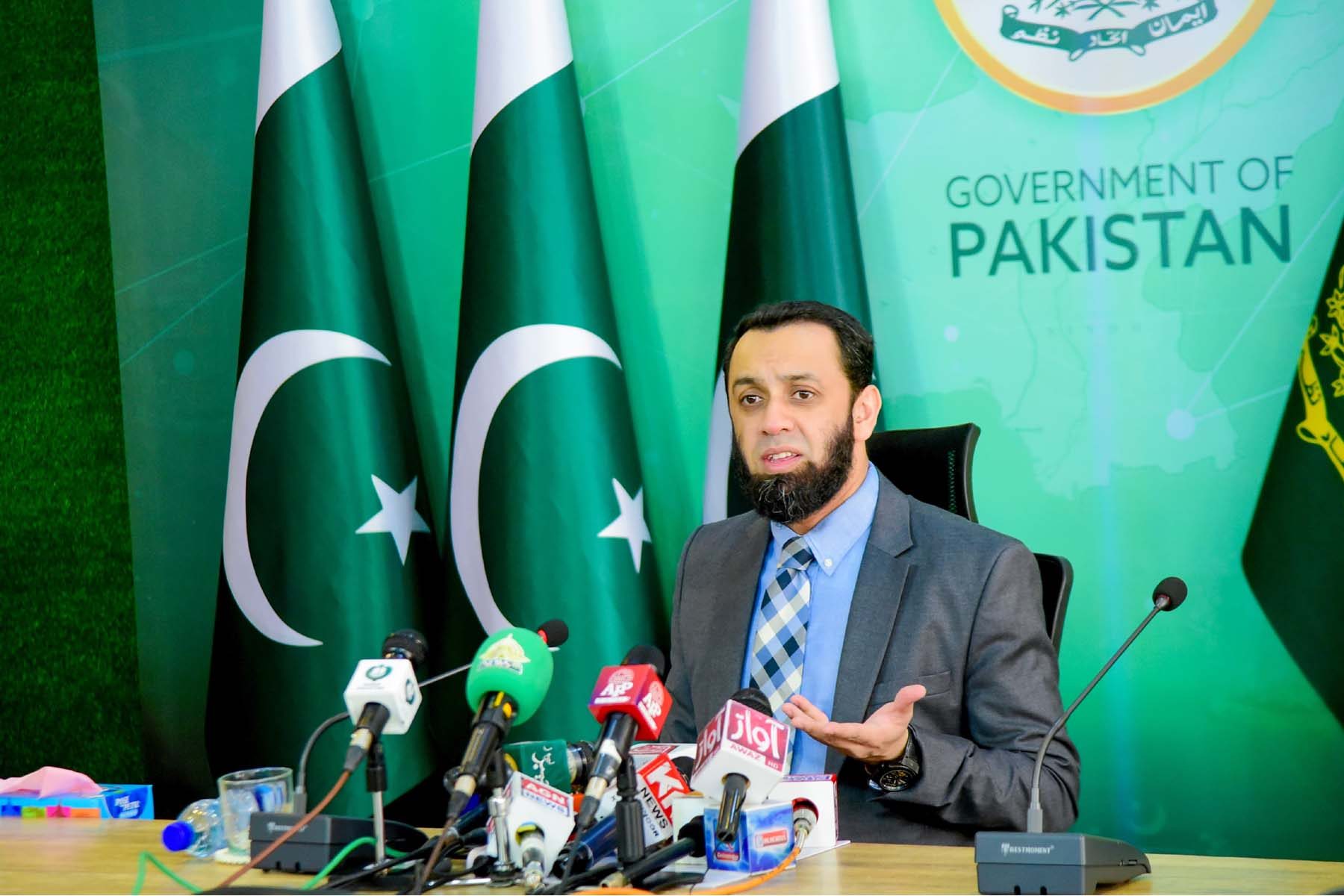onus is on Kabul to act against terrorists who use Afghan land to target Pakistan.
Pakistan and Afghan Taliban agree on joint monitoring to halt cross-border terrorism after tense talks.
Pakistan – Afghnistan – (Special Correspondent / Web Desk) – On Sunday, Information Minister Attaullah Tarar stated that with the establishment of a joint monitoring and verification apparatus, Kabul will be responsible for taking action against terrorists operating on Afghan land.
A second round of talks between Pakistani and Afghan Taliban delegations began in Istanbul on October 25 after days of border fighting, but Islamabad’s long-standing concern over terror attacks emanating from Kabul remained a significant bone of dispute, ending in a stalemate. A breakthrough occurred after Turkey and Qatar saved the conversation process for the second time in less than a week, following Pakistan’s admission on October 29 that the discussions had “failed” and that its negotiators were preparing to return home.
The talks produced a three-point understanding — the continuation of the ceasefire, the establishment of a monitoring and verification mechanism to ensure peace, and penalties for violations. The operational details of that mechanism are expected to be finalised when the “principals”, senior representatives from both sides, meet again in Istanbul on November 6.
Speaking on Geo News programme ‘Naya Pakistan’, the information minister responded to a question about the monitoring mechanism discussed in Istanbul, stating that a review would be taken of activities during the past few days and modalities on a joint mechanism would be discussed.
“The onus is on the Afghan regime because their soil is being used for terrorism in Pakistan by Fitna-al-Khawarij and Fitna-al-Hindustan,” he explained. “For Pakistan, this will be an additional forum to provide evidence and the Afghan Taliban regime has to take action. If they do not take action, they will receive punishment.”
Fitna-al-Khawarij is a term the state uses for terrorists belonging to the banned Tehreek-i-Taliban Pakistan, while Balochistan-based groups have been designated Fitna-al-Hindustan to highlight India’s alleged role in terrorism and destabilisation across Pakistan.
When asked if Pakistan would respond to terrorist attacks by striking targets in Afghanistan after the mechanism is in place, Tarar said it would depend on the situation.
“If the situation is very serious and if Pakistan has the right to respond within international law and the UN Charter, then it depends on the situation that arises,” he responded.
“Once the mechanism is established, there is joint verification and evidence is produced, then any party violating the agreement will be punished. But it depends on the situation,” he added. “Now the Afghan Taliban have no room to make excuses like they used to do. Now that third parties are involved, they will have to take action.”
In response to a question about Afghanistan’s offer to hand over terror suspects to Pakistan, Tarar explained that Pakistan’s government had declined the offer and questioned why the Afghan Taliban administration was issuing such statements following the talks.
“The matter is clear: Pakistan has previously demanded that any terrorists who pose a threat to Pakistan be controlled or arrested,” he said. “However, the Afghan side says they are Pakistani nationals and they will be handed over … I believe these new claims are twisting facts. We immediately proposed a handover through a border post; it is a long-standing position.
“I don’t understand why they have to give these statements and complicate the situation.”
Tarar also called the Afghan Taliban government a “fractured regime” which does not have complete control of Afghanistan.
“There are fragments, and not all factions are in power. The civilian and military leadership in Pakistan are on the same page, and they (the Afghan Taliban) should stop accusing us. This is propaganda, to which we appropriately responded.”
Pakistan-Afghanistan relations deteriorated in recent weeks, with border clashes, counter-statements, and claims.
The hostilities began earlier this month, on the night of October 11, with an attack on Pakistan launched from Afghanistan. The attack followed an allegation by the Afghan Taliban of Pakistani airstrikes in Afghanistan, which Islamabad has neither confirmed nor denied.
For its part, Islamabad has long demanded that the Taliban stop terror groups from using its soil against Pakistan. The Taliban, however, deny the allegation of allowing terrorists to operate from Afghan soil.
Meanwhile, Pakistan continues to grapple with the issue of terrorism and has suffered multiple casualties among security forces in intelligence-based operations.
Pakistan and Afghanistan agree to a fragile week-long ceasefire.
After the initial skirmish on October 11, multiple others took place along the Pakistan-Afghanistan border. Meanwhile, strikes by Islamabad also targeted Gul Bahadur group camps in Afghanistan.
Eventually, the two sides came together for dialogue in Doha, which resulted in a temporary ceasefire, as well as a commitment to reconvene in Istanbul to work on mechanisms for lasting peace and stability between the two countries.
Türkiye and Qatar have deep ties with Pakistan, while Qatar also played a major role in the negotiations between the Afghan Taliban and Nato forces.





Comments are closed, but trackbacks and pingbacks are open.